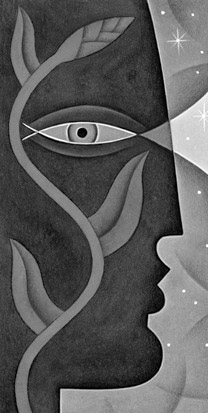AHAZ

Our heritage influences, but doesn’t necessarily determine, our life decisions. King Ahaz of Judah illustrates this truth in two ways: he turned away from the good examples of his father Jotham and his grandfather Uzziah, but his poor example seems to have had little effect on his own son Hezekiah, who proved to be a great and godly king.
The circumstances in the life of King Ahaz fall into the general categories of bad and worse. When Judah suffered a debilitating attack from rivals Israel and Syria, the king ignored an opportunity to seek God’s help and turned instead to Assyria for assistance. Ahaz’s cowardly leadership forced Judah into virtual slavery to the Assyrians.
Soon every evidence that Judah had once been a God-fearing nation was smashed, defaced, or tucked out of sight. Ahaz imported idolatry. He even presented some of his children as offerings to the gods he hoped would rescue him and his nation from their disastrous situation.
We share Ahaz’s sin when, from beneath a load of failures and trials, we turn away from good examples and from God. Instead of repenting of any known sin and calling upon God for relief, we, like Ahaz, may appeal to every other source of aid but God—our own abilities, money, or harmful habits. The results only serve to increase our tragic circumstances.
Difficulties and mistakes will either devastate our faith or they will stimulate growth and maturity. The positive differences come when we humbly seek God’s help, whatever the situation. Trials that tempt us to turn away from God should, instead, spur us to turn toward God.
Weaknesses and mistakes |
|
Lessons from his life |
|
Vital statistics |
|
Key verse |
“And in the time of his distress did he trespass yet more against the LORD: this is that king Ahaz” (2 Chronicles 28:22). |
Ahaz’s story is told in 2 Kings 16 and 2 Chronicles 28. Isaiah 7–10 records several amazing prophecies given during his reign.